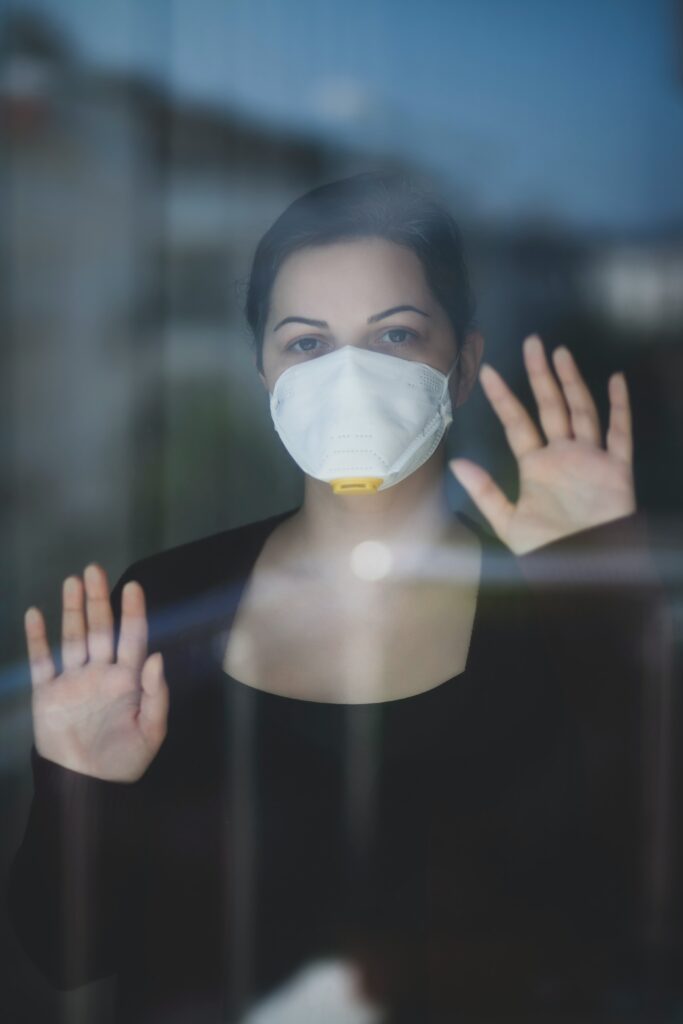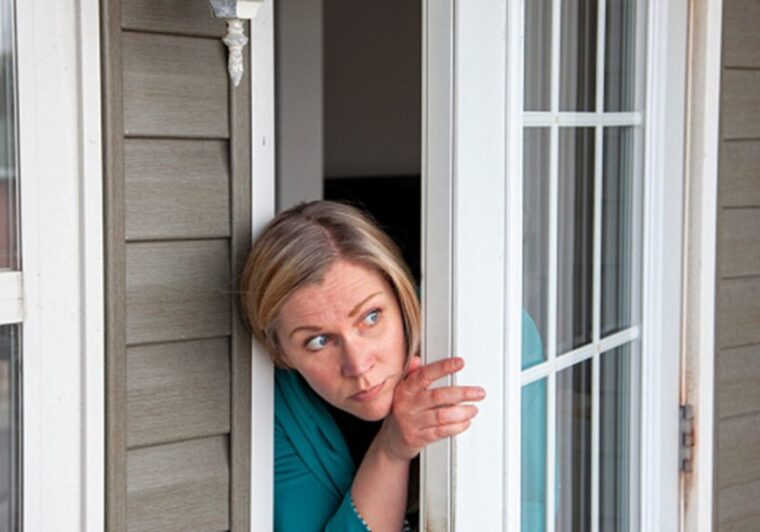Are you Afraid to leave your home?
Do you have a “Fear of Leaving the House” due to COVID-19?
Are you scared to be around people?
Do you want to know if you have Agoraphobia?
Have you gone from being a social butterfly to being a hermit?
Typically, people may fall into one of these social categories: homebodies, social butterflies, in between, or wallflowers. Social butterflies love being out and about, thrive on being around others and, love socializing. They would much rather spend time around and interacting with people. However, while Wallflowers may go out, attend parties, events and social gatherings, they will avoid being in the limelight. Although they will go out, they tend to distance themselves from the crowds. Other people are considered hermits. These people prefer to stay inside, away from people, and don’t care to interact with people at all. Hermits usually enjoy being by themselves or isolating themselves from people.
But what if you used to be a social butterfly and now have hermit like traits? Perhaps you went from being a social butterfly to being afraid of leaving the house. What does this mean? Imagine being able to go out, hanging out with family and friends, getting invited to parties, and attending events to not doing any of these things, not because you don’t want to do them, but because of a fear. If you are afraid to leave the house, you won’t be able to do any of these things.
What is Agoraphobia and Do I Have It?
People who have a “fear of leaving the house” most likely have agoraphobia. The DSM-5-TR defines agoraphobia as a person who is anxious and fearful in many different situations. These include a fear of using public transportation, being in open spaces, being in enclosed spaces, standing in line or being in a crowd, being outside of the home alone and/or being outside of their home in general. Any of these situations may cause anxiety or fear to a person in them. People with agoraphobia will also actively avoid these situations. This could be through by teleworking, changing jobs to obtain a work from home job, getting their groceries delivered, ordering essential items online, or only virtually interacting with people. Even the thought of these situations may bring about a level of anxiety or fear too. These thoughts may be believing that getting out of these situations may be difficult or that something terrible could happen. In order to be diagnosed with agoraphobia a person would need to possess some symptoms for a duration of time and in which it affects their daily life. The most severe forms of agoraphobia will cause a person to be homebound and unable to leave their home even for basic needs. These symptoms or behaviors should not be used as a justification to self-diagnosis yourself for agoraphobia.
Affects Due to the Coronavirus Pandemic
Many of these symptoms could also describe the coronavirus pandemic. Throughout the coronavirus pandemic people have experienced different levels of restrictions. The most intense restrictions involved lockdowns for weeks at a time. This meant that per the government people could only leave their homes for essential things such as food and medicine. Even physically going to work was restricted to only essential workers. This was all due to the life threatening dangerous wide spreading COVID-19 and variants. Since we were first exposed to this, we have been able to come up with many ways to protect ourselves: getting vaccinated, getting booster shots, social distancing, wearing masks, and washing our hands more frequently. As time went on restrictions were lifted or eased. This allowed people to go out, leave their homes and interact with people outside of their homes.
However, since the pandemic chances are the number of people with a fear of leaving the house has increased. Some of these people may have been social butterflies, liked going out, or enjoyed being out. Although, they may want to go outside and interact with people outside of their homes, they may just be too afraid to do this. How does a person get over their fear of leaving the house or fear of leaving the house due to the coronavirus?

Ways to Address Your “Fear of Leaving the House” and Agoraphobia
There are a few ways that this can be addressed. First you should try to figure out if this is agoraphobia or a fear of leaving the house due to the coronavirus. One easy method to decide this is to determine whether this fear existed before the coronavirus pandemic or developed due to COVID-19.
If you think it’s due to COVID-19 you could try the following health precautions:
- Get the vaccine and booster shots
- Talk to your physician about COVID-19 and any personal risks
- Take precautions such as wear a mask, social distance, wash hands, and use hand sanitizer
Other Methods are the following:
- Getting tested frequently or utilize home test kits
- Limit how often you go out and who you go out with
- Limit the number of people you are around outside of your home
- Go outside when there are less people out or places with less people
- Go outside with someone you trust
If you have had a fear of leaving the house even before the coronavirus pandemic, then you may need to work on additional methods. Some of these may include the following:
- Try sitting on your porch or sitting on your deck
- Try going into your front or backyard
- Get the mail or take the dog outside
- Talk a walk with someone who makes you feel safe
Seeking Professional Help
An additional method may be to seek professional help. This could be a psychiatrist. A psychiatrist may be able to prescribe you medication to assist you with managing your anxiety. This professional help could also be seeing a therapist. Don’t worry about having to leave your home to see a therapist for therapy sessions because you could just sign up for teletherapy services. Teletherapy is just as effective as in person therapy sessions for most issues. A therapist can help you more in depth to address your agoraphobia and/or fear of leaving the house. They will assess how intense your fear is for different situations, determine which small goals for you to try, teach you different relaxation techniques such as breathing exercises and muscle relaxation to decrease your fear and anxiety, utilize cognitive therapy or cognitive behavioral therapy (CBT) to address your negative cognitive thoughts, and/or teach you Systematic Desensitization which gradually exposes you to situations to work your way up through your levels of fear.
There is no set timeframe for how long it could take to get over your fear of leaving the house or your fear of leaving the house due to COVID-19. The important thing is to work on it, seek help, actively engage in treatment and be patient throughout your treatment. Although it may not initially seem like it, therapy does and can be beneficial.

